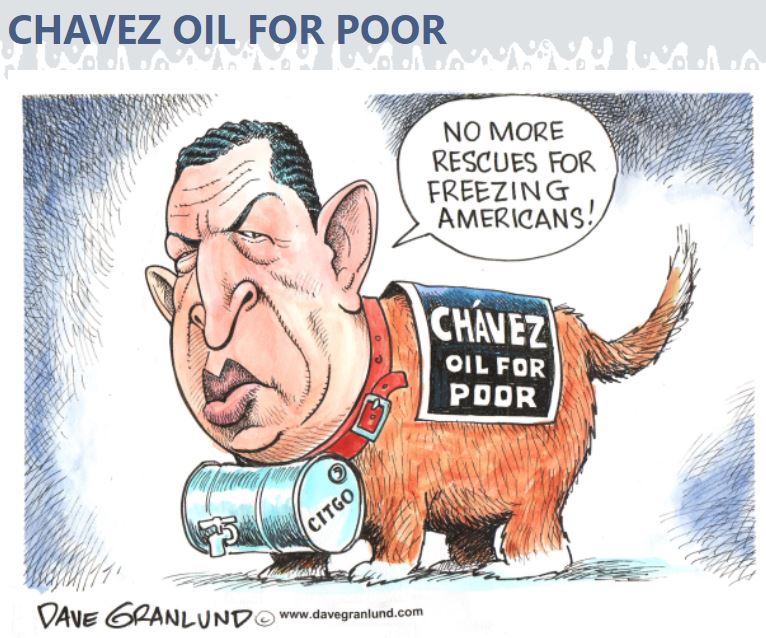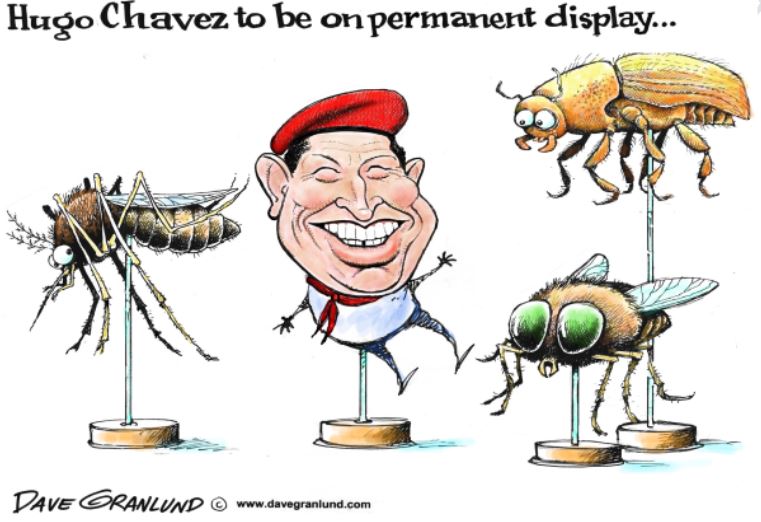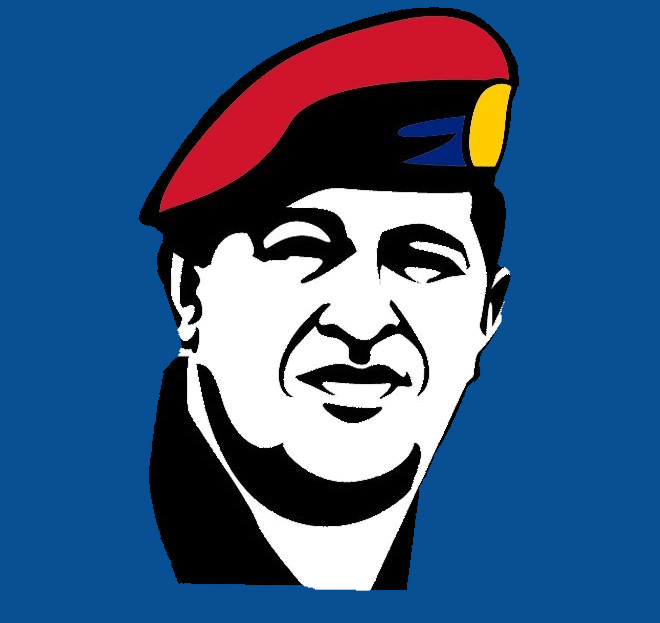Chavez as an Animal
Political Cartoons
Foucault discusses how power is not a repressive action because it is not binary between two parties since it always exercises a cost. Chavez drawn as militant can lead some to assume that he is powerful, but this interpretation erases the negative cost that comes with this power. Chavez’s relationships with other countries’ leaders and with the Venezuelan people are the greatest costs associated with his enhanced power.
The way that the red beret becomes a symbol throughout the political cartoons lends itself to Lorde’s discussion of oppressive expressions and feelings. Feelings are, according to Lorde, “first made into language, then into idea, then into more tangible action.” If these political cartoons make people fear Chavez because he looks more militant, then these cartoons are inherently oppressive and sustain the hegemonic structure.


Videos
B-roll used of Chavez frequently features him angrily yelling. Even when talking about positive policy points, negative b-roll “others” Chavez. The anger and angle of the camera for these shots are meant to turn Chavez into something exotic. Protestors, whether supporters or opponents of Chavez, are also yelling and are frequently interviewed. B-Roll only shows supporters when yelling, and their words indistinguishable, portraying them as exotic and misunderstood.
